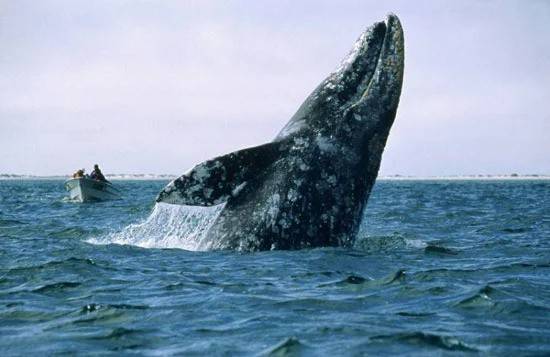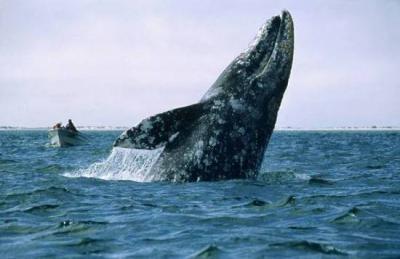Gray whales in the Pacific have experienced a 13% reduction in size over two decades, according to a recent study that offers new insights into the effects of climate change on marine mammals. Scientists warn that this decrease in size may significantly impact the whales' ability to reproduce and survive, and may also affect their feeding systems.
In this study published in the journal "Global Change Biology," researchers focused on a small group of about 200 gray whales from the northeast Pacific. These whales are considered "ecosystem guardians," remaining close to the coast and feeding in shallower, warmer waters compared to other gray whale populations. Previous studies have shown that this group of smaller and less massive whales is in worse condition compared to others.
Kevin Berlich, a co-author of the study, told AFP, "We now know that the bodies of these animals have shrunk over the past 20 to 40 years, which may be an early sign that their population is at risk of decline." Researchers analyzed images captured by drones from 2016 to 2022 of 130 whales whose ages were estimated or known, finding an average 13% reduction in the size of adult whales between those born in 2000 and those born in 2020, equivalent to a decrease of 1.65 meters for these animals that average about 13 meters in length.
This shrinking size is more pronounced in females, which were historically larger than males, but are now nearly the same size. Nonetheless, according to Enrico Beruta, the research's lead author, "size is crucial for animals," as it affects their behavior, physiological functions, life cycle, and has cascading effects on the animals and groups they belong to. This particularly influences reproduction, with smaller offspring potentially facing lower survival chances.
Importantly, the study established a correlation between this size reduction and the disruption of ocean cycles caused by climate change, especially currents that allow for the growth of plankton, the whales' food source.




